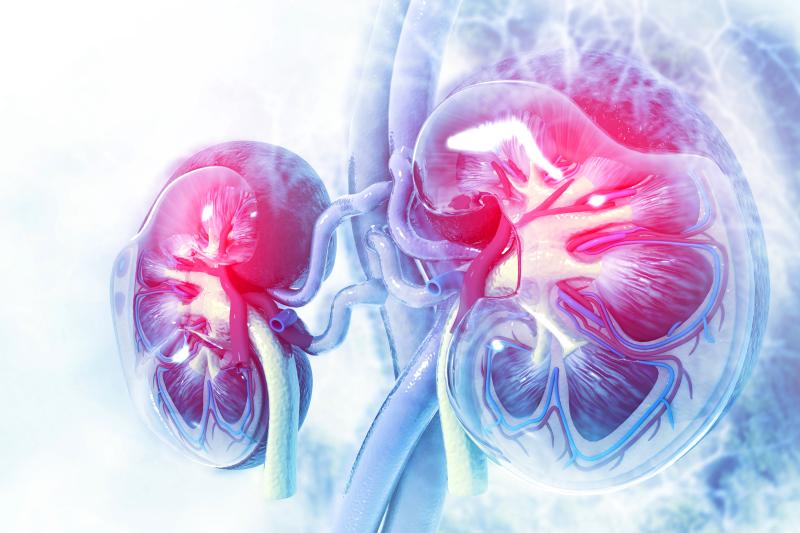
Patients with chronic hyperglycaemia may be at much greater odds of developing kidney stone disease (KSD), according to the results of a systematic review and meta-analysis.
Researchers searched multiple online databases for population-based observational studies investigating the potential association between chronic hyperglycaemia, including diabetes mellitus (DM) and impaired glucose tolerance (IGT), or metabolic syndrome (MetS) and KSD.
The search yielded 2,340 articles, of which 13 studies (seven involving DM and six MetS) were included for meta-analysis. Five of the MetS studies reported on IGT alone. The total population included 28,329 DM patients, 31,767 MetS patients, 12,770 IGT patients and their corresponding controls (n=589,791, n=178,050 and n=293,852).
Pooled data revealed that DM was associated with an increased risk of KSD (risk ratio, 1.23, 95 percent confidence interval [CI], 0.94–1.51; p<0.001). Adjusted odds ratios for KSD were 1.32 (95 percent CI, 1.21–1.43; p<0.001) in the DM cohort, 1.26 (95 percent CI, 0.92–1.58; p<0.0001) in the IGT cohort and 1.35 (95 percent CI, 1.16–1.54; p<0.0001) in the MetS cohort.
The risk of KSD did not significantly differ between IGT and DM (cross-sectional/case-control) nor between IGT and MetS.
There was a moderate risk of publication bias.
The present data have global implications considering the rising morbidity and absolute mortality attributable to stones, according to the researchers. Tight glycaemic control and weight loss should be evaluated for their primary preventative effect on KSD in chronic hyperglycaemia populations, and be included as part of the long-term management of KSD.